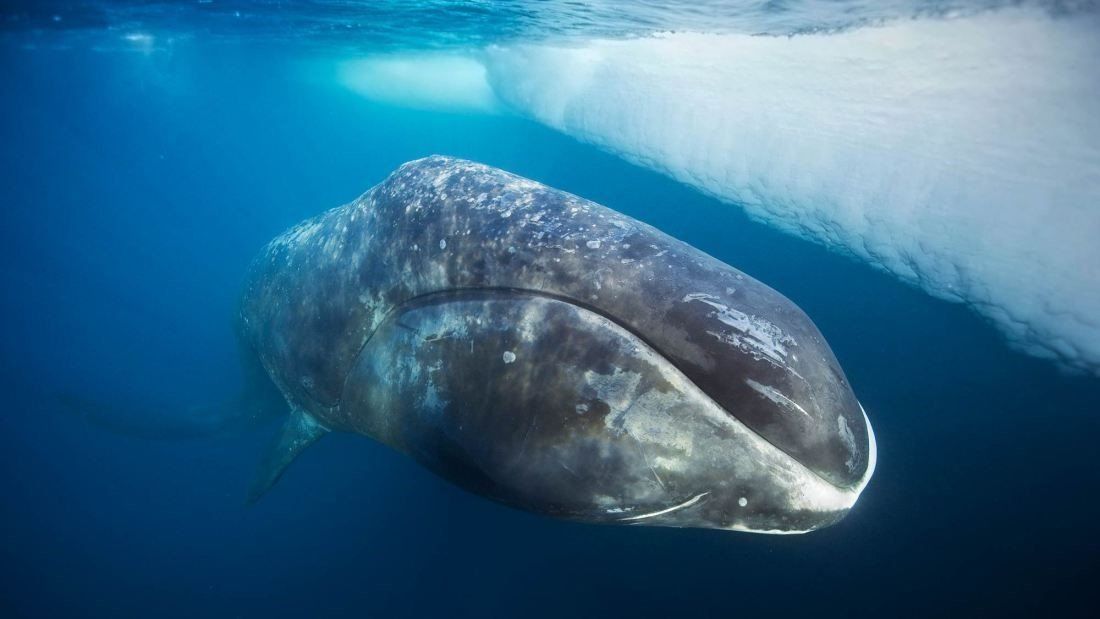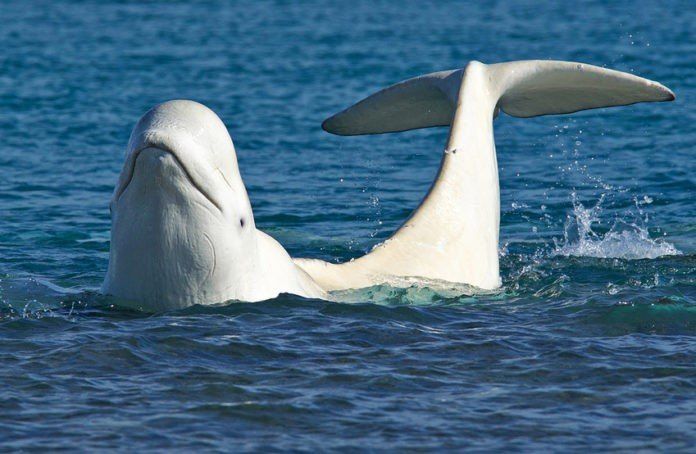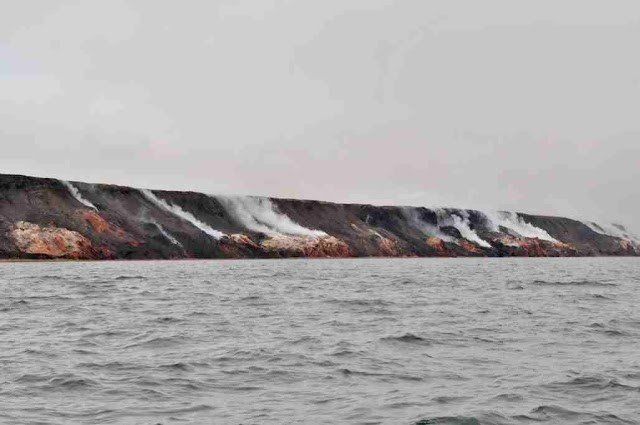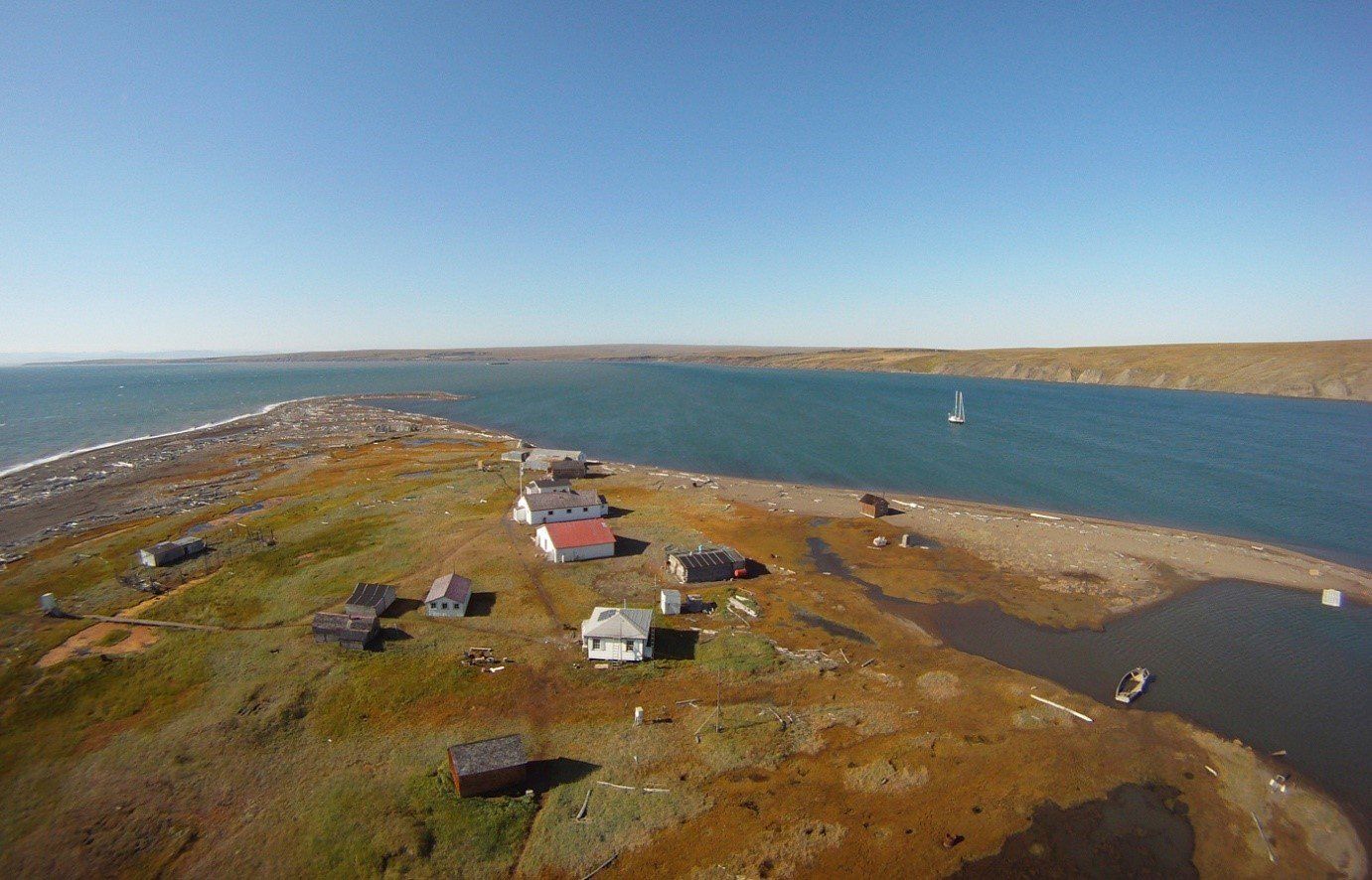Management Strategies To Reduce Vessel Traffic in Whale Concentrated Areas.
Vessel traffic has been documented to have negative impacts on whales by hitting them and causing physical harm, disturbing whale acoustics, disturbing behaviour, increasing stress levels, and polluting waters. In the past, the Arctic environment has not been as affected by boat traffic compared to temperate and tropic environments. However, because of ice-melting and the development of new technology, this environment has become more available, and therefore more vulnerable to these disturbances.
The vessel traffic in the Arctic has increased by three times from the 1980s to 2014, with pleasure- and passenger vessels increasing the most (Pizzolato et al., 2014). Pleasure- and passenger vessels that travel in the Arctic are often destinational and can harbour marine mammal observers searching for wildlife. They will therefore spend more time in areas with high concentration of marine animals, compared to other vessels (tankers and cargo vessels). More time spent in these areas can result in a greater overall disturbance of marine wildlife.
The bowhead whale and the beluga whale have their summer range in the Western Canadian Arctic. In this area, the pleasure- and passenger craft traffic has increased from < 5000 km (in beluga area) and < 10 000 km (in bowhead area) from the year 2000 to > 45 000 km and 70 000 km in 2010 (Halliday et al., 2018). Due to this great increase in traffic, management strategies to protect whales in these areas have been implemented. Halliday et al. (2018) investigated three of these strategies in one beluga area and one bowhead are in the Inuvialuit Settlement Region (ISR) in the Western Canadian Arctic. The strategies were: exclusion zones within marine protected areas (MPAs), corridors (rerouting of vessels), and slow-downs.
The exclusion zones within MPAs proved to be ineffective (Halliday et al., 2018). For this management strategy to be effective it requires a great overlap with the whale concentration in that area. However, these zones only overlapped by 0.3% and 5%. Travelling outside these zones would therefore likely involve travelling in adjacent waters which are still highly concentrated whale areas. On the other hand, if the exclusion zones were implemented around the entire whale concentration area, they could be highly effective, especially for protection against shipping vessels and other mariners. Due to the fact that pleasure- and passenger vessels are often searching for whales, these exclusion zones would likely have to be mandatory for such vessels to avoid them.
The corridor currently in place in the ISR overlaps the whale concentration with 41% and 55% (Halliday et al., 2018). The pleasure- and passenger vessel traffic, however, overlaps by 40-90%. Following these corridors would therefore not eliminate traffic in whale concentration areas but could reduce it. Halliday et al. (2018) drew a new corridor for this area, which would lead to a complete avoidance of the whale areas. However, like the exclusion zones, corridors are less likely to be effective in protecting whale areas against pleasure- and passenger vessels unless they are made mandatory.
The last management strategy investigated by Halliday et al. (2018) was the slow down of vessels. Slowing down when approaching whale areas could reduce the likelihood of directly striking animals, as well as reducing the acoustic disturbances. However, traveling at a slower speed would increase the time spent in these areas and thereby possibly increasing stress and overall disturbance of wildlife.
The two whale areas in this study are adjacent to two popular tourist areas, Herschel Island and the Smoking Hills. To get to these area one has to travel directly through the whale areas. It is therefore unlikely that vessel traffic from pleasure- and passenger boats could be completely erased.According to the study by Halliday et al. (2018), the two management methods that were most effective were corridors and slow-downs. The corridor investigated by Halliday et al. (2018) has been proposed by Transport Canada, the Canadian Coast Guard and Canadian Hydrographic Service. Corridors would not eliminate traffic but could reduce overall general impacts from vessels. A speed restriction of 10 knots outside these corridors might be effective to reduce ship strikes and acoustic disturbance. Other management methods that could be considered are limiting number of vessels (although unlikely in this scenario due to the tourist locations), code of conduct/industry best standard, and monitoring position of vessels and whales simultaneously.
References:
Halliday, W.D., Têtu, P-L., Dawson, J., Insley, S.J., Hilliard, R.C., (2018), Tourist vessel traffic in imprtant whale areas in the western Canadian Arctic: risks and possible management solutions, Maine Policy, Vol .97, pages 72-81
Pizzolato, L., Howell, S.E.L., Derksen, C., Dawson, J., Copland, L., (2014), The influence of declining sea ice conditions on marine transportation activity in Canadian Arctic waters between 1990 and 2012, Marine Policy, Vol. 97, pages 72-81
SHARE THIS ARTICLE

















